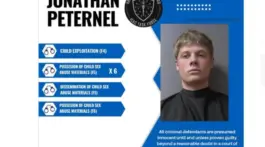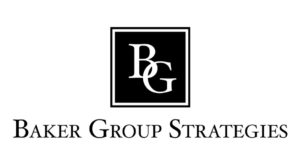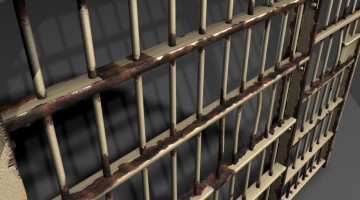By Marilyn Odendahl
The Indiana Citizen
October 28, 2024
After vacating a safety citation and $61,100 in civil penalties issued by Indiana against Lane Construction Corp., a Marion County Superior Court has sanctioned two state agencies and their lawyers from the Indiana Attorney General’s Office and ordered them to pay nearly $375,000 for misconduct.
In his findings of fact order, Judge James Joven highlighted multiple times during the three-year litigation of this case when the respondents – the Indiana Department of Labor, the Indiana Occupational Safety and Health Administration – and their counsel from the attorney general’s office disobeyed court orders, made misrepresentations to the court and petitioners’ attorneys, and spoiled evidence.
“Respondents and their counsel committed multiple types of unacceptable misconduct on numerous occasions. They acted in an unreasonable manner with disregard for Petitioners, the Court and the orderly process of justice,” Joven wrote in the order granting petition for attorney fees and costs. “Further, Respondents failed to explain why the repeated acts of misconduct occurred and went uncured, failed to accept responsibility for the misconduct, failed to express remorse, and failed to identify steps that have been taken to prevent such unacceptable misconduct from occurring in the future.”
Subsequently, in an Oct. 15 order, Joven awarded the petitioners – Salini Impreglio/S.A. Healy Joint Venture and the Lane Construction Corp. – $373,300.23 for attorney fees, costs and expenses. Also, he found the respondents and the attorney general’s office are both responsible for paying the award within 30 days.
Joven asserted the sanctions were called for because about a year prior to this case being filed, the Indiana Department of Correction, its counsel from the attorney general’s office and the attorney general’s office itself were sanctioned in another case for making false representations to the federal judge, making false discovery responses and submitting a brief that contained false information.
“Despite the recent Littler decision, Respondents and their counsel have engaged in conduct that is unacceptable in this Court,” Joven wrote.
The Indiana Attorney General’s office declined to answer questions about the case, citing attorney client privilege, and referred inquiries to the Indiana Department of Labor. The IDOL said it is currently reviewing the ruling and had no comment.
Petitioners’ lead counsel, Bradley Sugarman of Bose McKinney & Evans, did not respond to a request for comment.
‘Disregard for the orderly process of justice’
Salini and Lane Construction asserted in their petition for attorney fees that the respondents and their attorneys made the case “more difficult and expensive than it needed to be.” In particular, IDOL and IOSHA refused to discuss any potential settlement agreement and, instead, “needlessly forced” Salini and Lane into a costly litigation.
“Respondents rejected multiple overtures from Petitioners’ counsel to engage in settlement negotiations, which could have led to a quicker and much less expensive resolution of this dispute,” Salini and Lane asserted. “Respondents refusal to explore settlement was exacerbated by their aggressive litigation tactics, which drove Petitioners’ costs up even higher.”
Joven’s ruling details the respondents’ actions that, according to the court, caused significant delays and needlessly wasted resources.
The dispute began when the state Labor Department issued three safety orders to Lane Construction in March 2021 for alleged violations at a jobsite in Fort Wayne.
Neither IDOL nor IOSHA served the safety orders at the jobsite, as required by Indiana law, Joven wrote in his ruling. Instead, the labor department mailed the orders to Lane’s corporate headquarters in Connecticut, but did not designate the recipient. The orders arrived at Lane’s offices on March 29, 2021, and were first routed to the payroll department before being forwarded to the legal department on April 28, 2021.
Lane stated in court filings that it fought the safety order citing a willful violating of IOSHA rules because that could stain its record and negatively impact the company’s business. However, IDOL refused to certify Lane’s petition for administrative review to the Indiana Board of Safety Review, so the construction company said it had no recourse but to file its petition for judicial review in Marion County Superior Court.
Immediately, the parties disagreed on the scope of the agency record. IDOL’s general counsel swore under penalties of perjury that the record was 21 pages, but Joven noted in his findings of fact that it was not the full record. The court ordered IDOL and IOSHA to submit the supplemented agency record by Jan. 18, 2022.
However, Joven stated in court filings, IDOL and IOSHA did not produce a single document by the deadline and then told the court three separate times they would turn over all the documents by Feb. 18, 2022, but did not submit what they claimed were all the documents until August 2023. The respondents told the court in April 2022 that they complied, producing 4,300 pages of documents, but, Joven noted, they later admitted “this was false,” as the agency record swelled to more than 7,000 pages.
Also, the state agencies did not submit documents they said were privileged to the court for in camera review, in violation of the court’s September 2022 order, and they falsely told Lake they could not produce any of the Microsoft Teams messages from the initial IOSHA inspector investigating the company.
Moreover, according to Joven’s ruling, the IDOL and IOSHA spoiled evidence by intentionally altering or deleting parts of the file on Lane Construction after the safety orders were issued and the petition was filed.
“Respondents’ misconduct has caused significant delays and needlessly forced Petitioners and the Court to expend significant resources,” Joven concluded. “Given the totality of circumstances, including the briefs, agency records, and statements Respondents’ counsel made at hearings, the Court concludes that Respondents and their counsel have acted in an unreasonable manner with disregard for Petitioners, the Court, and the orderly process of justice.”
Award supported by previous sanction
The Indiana Department of Labor and IOSHA urged the trial court not to award attorney fees and costs. In their response, they asserted the court had already issued “an extreme sanction” by vacating the safety orders.
However, the state agencies argued, if the court did find additional sanctions were warranted, then the petitioners should be able to recover only reasonable fees and costs. They called the $334,216.17 request from Salini and Lane unreasonable and asserted the invoices show the company’s counsel, Bose McKinney & Evans, “frequently over-staffed this case, duplicated efforts, and charged exorbitant rates.”
The respondents argued the nature of the litigation was not complex with the bulk involving routine courtroom work, such as disputing the scope of the agency record and appearing in court for hearings. Also, the state agencies state several entries on the invoices are “too vague” and “rife with inadequate descriptions.” Moreover, the respondents asserted seven different Bose McKinney partners as well as two associate attorneys and three paralegals all billed for work on the litigation, showing the firm overstaffed the case and duplicated its efforts.
“Petitioners have not provided any justification for the fact that over four times as many partners billed on this case than associates – at a fee rate almost twice as high as the associates,” the IDOL and IOSHA argued. “The nature of the case did not require such expertise.”
Salini and Lane Construction countered that, saying that finding and proving the “unlawful conduct by the administrative state” took time and money.
“The irony of Respondents’ argument is that perhaps they could have avoided the Order (through settlement or by avoiding misconduct) if they had appreciated the complexity and seriousness of this matter, the fact in the record, their obligations to Petitioners and the Court in preserving and producing evidence, and the applicable procedural and substantive law,” Salini and Lane argued. “At bottom, the factual complexity of this case is demonstrated by the length of the agency record (over 7,000 pages), and the legal complexity is shown by the type and number of legal claims and length of judicial review briefs.”
As part of their reply, Salini and Lane Construction stated they had incurred an additional $15,499.28 in attorney fees and costs, bringing the total amount of its requested award to $349,715.45.
The trial court did not explain how it reached the award of $373,300.23, an increase of $39,084 over the petitioners’ original request. However, the court did assert the heavy sanction was deserved because of the misconduct by the Respondents and their counsel came so soon after the federal court found the lawyer from attorney general’s office may have violated the rules for civil procedure and their ethical obligations in Littler v. Martinez, 2:16-cv-00472.
That case was brought by Phillip Littler, an inmate at Wabash Valley Correctional Facility, alleging the excessive use of force by correctional officers and deliberate indifference by medical staff members at the prison. In 2020, the Southern Indiana District Court found the lawyer from the attorney general’s office had “facilitated the State Defendants’ falsehoods” by failing to investigate whether the statements she presented to the court were supported by the evidence. In addition, despite several opportunities to take corrective action, the lawyer did nothing.
As a result, the federal court ordered the Indiana attorney general’s office and the lawyer to pay the plaintiff’s request for all of his attorney fees and costs of $114,364.41.
Joven noted the misconduct by the state agencies and their counsel in the Lane case not only came soon after the Littler sanction, but also were willful acts.
“Respondents have the burden of showing their disobedience of the orders was not willful, … but they failed to do so,” Joven wrote in his findings of fact. “In fact, their continued refusal to submit at least one document they claim is privileged for in camera review and their unexplained and uncured removal of material from the file after issuing the Safety Orders in derogation of agency policy confirm their disobedience is willful.”
The case is Salini Impreglio/S.A. Healy Joint Venture and The Lane Construction Corporation v. Indiana Department of Labor and the Indiana Occupational Safety & Health Administration, 49D13-2106-PL-018812.
Dwight Adams, a freelance editor and writer based in Indianapolis, edited this article. He is a former content editor, copy editor and digital producer at The Indianapolis Star and IndyStar.com, and worked as a planner for other newspapers, including the Louisville Courier Journal.
The Indiana Citizen is a nonpartisan, nonprofit platform dedicated to increasing the number of informed and engaged Hoosier citizens. We are operated by the Indiana Citizen Education Foundation, Inc., a 501(c)(3) public charity. For questions about the story, contact Marilyn Odendahl at marilyn.odendahl@indianacitizen.org.
Note: Indy Politics editor Abdul-Hakim Shabazz has a pending complaint against Rokita alleging a violation of the Rules of Professional Conduct.













